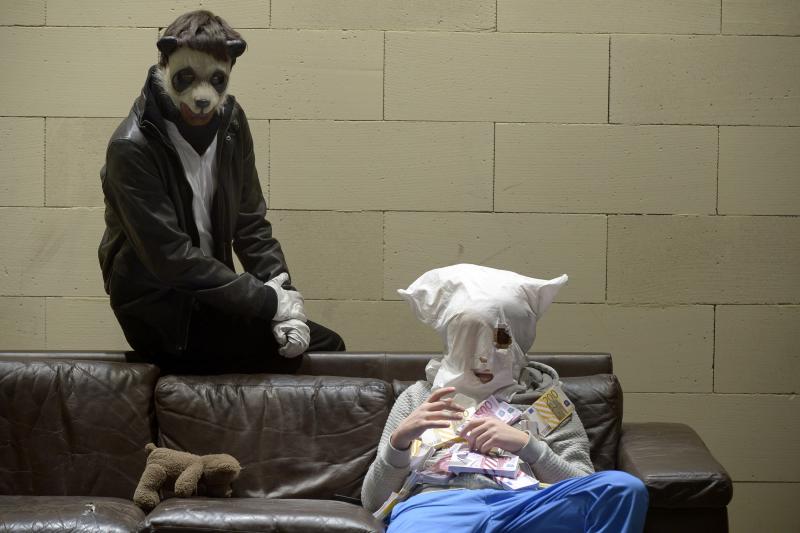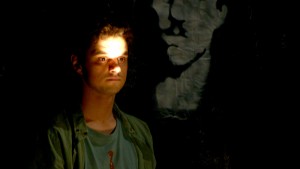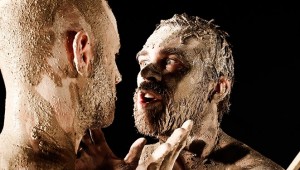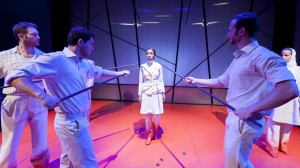The social face of TERRORisms
The 70s of the past century in Germany will forever be marked with the names of Andreas Baader, Ulrike Meinhof, Gudrun Ensslin, Brigitte Asdonk and many other leftist activists. Years later they would be called terrorists, known as the “Baader-Meinhof Gang”. Provoked by the growing American influence in Germany and the obvious inclination to imperialism by the newfound yuppie-society, the gang began defending social-democratic interests of the middle class. The scars of WW II had not yet healed, when some people were already turning towards the extreme right again.

45 years after the emergence of the Red Army Faction, we see our coexistence with the phenomenon of terrorism like a neighbour in a big city: we are living next to it but we don’t really know it. The growing media interest in terrorist attacks results in the easy formation of opinions and models that society blindly believes. In a wider sense, this media influence has been built by the western culture overseas that has been ruling for the past few decades. Living in a Big Brother society or a life of constant video surveillance moves the focus from the heart of the problem to a spectacular form. The creation and imposition of images, without giving much meaning to the story behind them, often leads to mass misbelief and psychosis. Hyper information, aggressive advertisement and ‘show’ business are moving the human being away from comprehensive insight on surrounding situations. It’s getting harder and harder for us to concentrate on something specific while we have free access to everything. We don’t question the news, brought to us as facts, less and less.
37 years after Andreas Baader’s death —conveniently declared as a suicide — in Stammheim prison in Stuttgart, we’re looking at the phenomenon of terrorism again: same place, different building. The Schauspiel Stuttgart hosted the international theatre festival TERRORisms. Under the auspices of the UTE (Union des Théâtres de l’Europe), the festival invited five productions from five countries, especially produced for this occasion: 5 morgen, Schauspiel Stuttgart, Germany; We Chew on the Bones of Time, National Theater of Oslo, Norway; The Dragonslayers, Yugoslav Drama Theater, Belgrade, Serbia; God Waits at the Station, Habima – National Theater of Israel, Tel Aviv; La Baraque, La Comédie de Reims, France. The official programme was accompanied by discussion panels and additional performances. Considering the frequent acts of terrorism in different locations, with different presumptive assumptions, the title of the festival explores the meanings of the word ‘terrorism’ in the context of different social mechanisms and their related problems.
It has been 14 years since the phenomenon of terrorism has become an excuse for taking extreme measures when it comes to human rights and the protection of privacy. With no small help from the media this phenomenon, which seems to be very convenient for the US, has been popularized. Thanks to this, the US has had the opportunity to make all of its military actions legal. Unfortunately, ‘terrorism’ has not led to prevention measures but has become a convenient pretext for imposing more extreme restrictions on our free existence in public. Big Brother has found a way to be in almost every public place. Private space and private life are becoming more and more a concept we know from stories and books. Using its function as a social and cultural mirror to focus on the above-mentioned tendencies, theatre sheds a light on these newly created “isms”. With various aesthetic forms and means of expression it explores the psychology and impact of TERRORisms as newly created mechanisms of propagating hate and public political controversies. In this light, the way theatre presents this phenomenon as well as its emotional attitude displayed in this context, is of particular importance. There’s no need to intensify terrorism’s characteristic features, no need to instigate further interracial, religious and political conflicts, no need to blame. Speaking of terrorism through the language of theatre, we should go in the opposite direction and depersonalize it, release it from its artificially created entity, from the stereotypes, but outside the theatrical conventionality.
Six months after the attack on the French satirical magazine ‘Charlie Hebdo’, La Baraque directed by Ludovic Lagarde, was shown at the festival in Stuttgart. Two weeks before the premiere of the show, which took place at the Comedie de Reims, the director received a phone call about the events in Paris. The project was not terminated, the premiere was a fact, and the result was a cheering audience.
Today. La Baraque by Aiat Fayez is set in a small apartment in Paris. Two men and a middle-aged woman, living their relatively miserable life, smoking joints, fooling around— a push through the window, sets in order the downward spiral that transforms the three protagonists almost accidentally into executors of terrorist orders.
The terror in this case is only one part of the absurd daily life of a working class Parisian. With mouse ears and ridiculous movements, the main actors prepare explosives in the manner of children who don’t know what they’re doing. Naturally, they’re soon carried away by the money, and the game moves to another level. Ridiculous, funny, arousing pity and derision; the characters embody terrorism in the form of an unfortunate coincidence. The same pattern occurs with addiction to drugs, alcohol, prostitution and gambling. The lack of culture in a combination with the low quality of life is a strong premise for an easy degradation. Of course, the degree of damage is different. But the conclusion is similar. Deliberately created informational deformations, genocide of art and culture, media manipulation, spreading hatred, all of which inevitably lead to the negative reflection on society.
Six, eight or ten months ago… doesn’t matter. Terrorism has become a matter of statistics, daily news, and TERRORisms is something that should not just be examined through the methodologies of stage and screen art, ISMS’t it?
Published on 1 December 2015 (Article originally written in Bulgarian)



